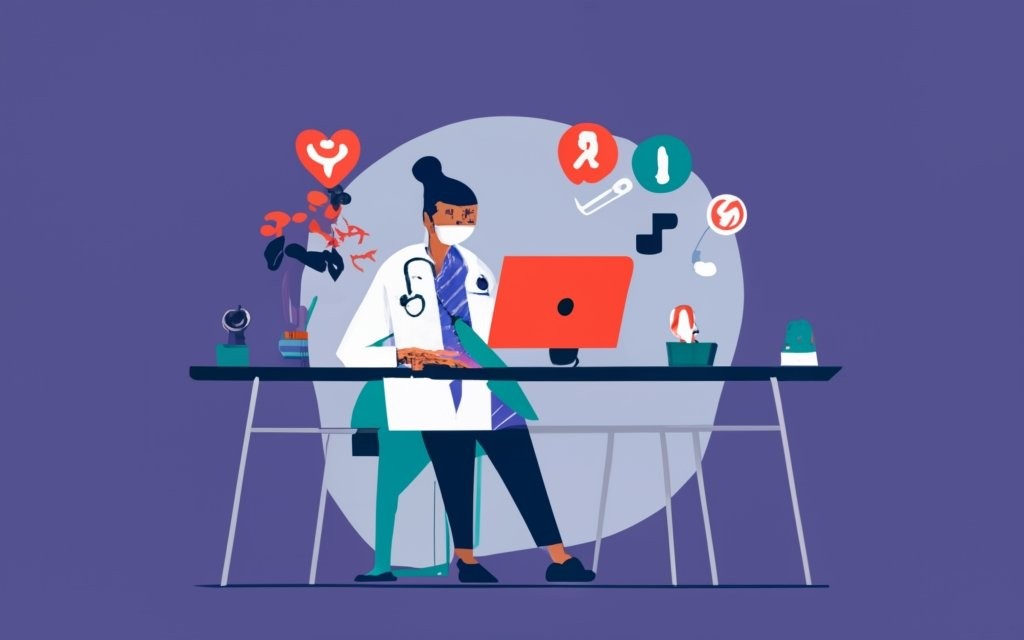In the ever-evolving landscape of healthcare, the role of hospital administration has become increasingly critical. Hospital administrators are the backbone of healthcare facilities, ensuring that operations run smoothly, resources are allocated efficiently, and patient care is of the highest quality. This article delves into the multifaceted role of hospital administration in patient care, highlighting the importance of effective management, the challenges faced, and the skills required to excel in this field. For those aspiring to make a difference in healthcare management, Al Mithaq Institute offers comprehensive courses that equip you with the necessary knowledge and skills to thrive in this demanding yet rewarding profession.
The Importance of Hospital Administration in Patient Care
Ensuring Efficient Operations
Hospital administrators play a pivotal role in ensuring that healthcare facilities operate efficiently. They are responsible for managing budgets, overseeing staff, and ensuring that the hospital complies with healthcare regulations. Efficient operations are crucial for providing high-quality patient care, as they ensure that resources are available when needed and that the hospital can respond quickly to emergencies.
Resource Allocation
Effective resource allocation is another critical aspect of hospital administration. Administrators must ensure that the hospital has the necessary medical supplies, equipment, and staff to provide optimal patient care. This involves strategic planning and decision-making to allocate resources where they are needed most, whether it be in the emergency room, operating theaters, or outpatient clinics.
Quality Assurance
Hospital administrators are also responsible for maintaining and improving the quality of patient care. This involves implementing quality assurance programs, monitoring patient outcomes, and ensuring that the hospital meets or exceeds healthcare standards. Quality assurance is essential for building trust with patients and ensuring that they receive the best possible care.
Patient Satisfaction
Patient satisfaction is a key indicator of the quality of care provided by a hospital. Hospital administrators play a crucial role in ensuring that patients have a positive experience during their stay. This involves addressing patient concerns, improving communication between staff and patients, and ensuring that the hospital environment is clean and comfortable.
Challenges in Hospital Administration
Financial Management
One of the most significant challenges faced by hospital administrators is financial management. Healthcare is a costly industry, and administrators must carefully manage budgets to ensure that the hospital remains financially viable. This involves making difficult decisions about resource allocation, negotiating with suppliers, and finding ways to reduce costs without compromising patient care.
Regulatory Compliance
Healthcare is a highly regulated industry, and hospital administrators must ensure that their facilities comply with all relevant laws and regulations. This includes everything from patient privacy laws to safety standards and accreditation requirements. Non-compliance can result in hefty fines, legal action, and damage to the hospital's reputation.
Staff Management
Managing a diverse and often large workforce is another challenge faced by hospital administrators. This involves recruiting and retaining skilled staff, managing employee relations, and ensuring that staff are adequately trained and motivated. Effective staff management is crucial for maintaining high standards of patient care.
Technological Advancements
The rapid pace of technological advancements in healthcare presents both opportunities and challenges for hospital administrators. On the one hand, new technologies can improve patient care and streamline operations. On the other hand, implementing new technologies can be costly and require significant changes to existing processes and workflows.
Skills Required for Effective Hospital Administration
Leadership and Management Skills
Effective hospital administrators must possess strong leadership and management skills. They must be able to inspire and motivate their staff, make strategic decisions, and manage complex operations. Leadership skills are essential for creating a positive work environment and ensuring that the hospital achieves its goals.
Financial Acumen
Financial acumen is another critical skill for hospital administrators. They must be able to manage budgets, analyze financial data, and make informed decisions about resource allocation. Financial management is essential for ensuring that the hospital remains financially viable and can continue to provide high-quality patient care.
Communication Skills
Effective communication is crucial for hospital administrators. They must be able to communicate clearly and effectively with staff, patients, and other stakeholders. This includes everything from giving instructions to staff to explaining complex medical information to patients. Good communication skills are essential for building trust and ensuring that everyone is on the same page.
Problem-Solving Skills
Hospital administrators must be adept at problem-solving. They must be able to identify issues, analyze data, and develop effective solutions. Problem-solving skills are essential for addressing the many challenges that arise in healthcare management, from financial constraints to regulatory compliance.
Technological Proficiency
In today's digital age, technological proficiency is a must for hospital administrators. They must be familiar with the latest healthcare technologies and be able to implement them effectively. This includes everything from electronic health records (EHR) systems to telemedicine platforms. Technological proficiency is essential for improving patient care and streamlining operations.
The Role of Education in Hospital Administration
Importance of Formal Education
Formal education is essential for aspiring hospital administrators. A solid educational foundation provides the knowledge and skills needed to excel in this demanding field. Al Mithaq Institute offers a range of courses in hospital administration, covering everything from financial management to healthcare regulations. These courses are designed to equip students with the skills they need to succeed in hospital administration.
Continuous Professional Development
The field of healthcare is constantly evolving, and hospital administrators must engage in continuous professional development to stay up-to-date with the latest trends and best practices. Al Mithaq Institute offers a range of professional development courses, allowing hospital administrators to enhance their skills and knowledge throughout their careers.
Specialized Training
Specialized training is another important aspect of education in hospital administration. Al Mithaq Institute offers specialized courses in areas such as healthcare quality assurance, patient satisfaction, and healthcare technology. These courses provide in-depth knowledge and practical skills that are essential for effective hospital administration.
Conclusion
The role of hospital administration in patient care is multifaceted and critically important. Hospital administrators are responsible for ensuring efficient operations, allocating resources effectively, maintaining quality assurance, and ensuring patient satisfaction. They face numerous challenges, from financial management to regulatory compliance, and must possess a range of skills, including leadership, financial acumen, communication, problem-solving, and technological proficiency.
For those aspiring to make a difference in healthcare management, Al Mithaq Institute offers comprehensive courses that provide the knowledge and skills needed to excel in hospital administration. Whether you are just starting your career or looking to enhance your skills, Al Mithaq Institute has the courses and resources to help you succeed.
Call to Action
If you are passionate about healthcare and want to make a difference in patient care, consider enrolling in one of Al Mithaq Institute's hospital administration courses. Visit our courses page to learn more about our offerings and take the first step towards a rewarding career in hospital administration. For more information about our institute, visit our about us page. If you have any questions, feel free to reach out to us through our contact page. Don't forget to check out our blog for more insights and updates on healthcare management.







